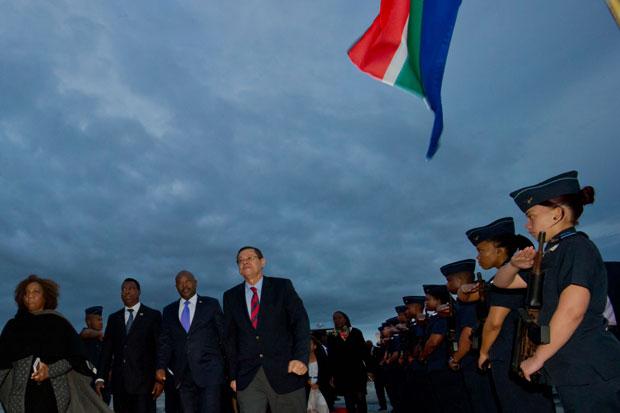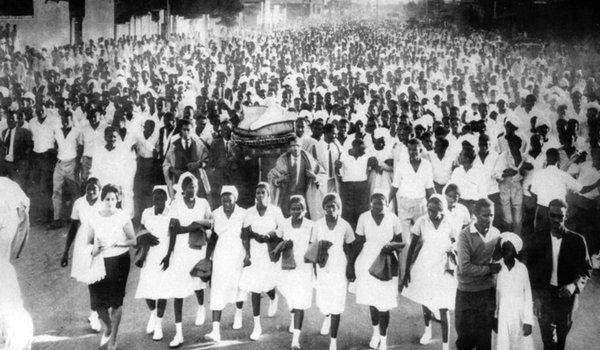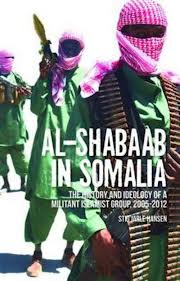In the shadow of genocides past: can Burundi be pulled back from the brink?

Rather than the Rwandan genocide, it is the 1972 genocide of Hutu in Burundi that suggests itself as the most meaningful frame of reference for an understanding of the present crisis.
“Can national dialogue break the power of terror in Burundi?” This key question addressed by participants to an international conference held in Bujumbura in May 1994, days after the Rwandan bloodbath, has lost none of its pertinence. Today, as in 1994, Burundi is tottering on the brink of the abyss, and once again the Rwanda genocide casts an ominous shadow on the future of this small, poverty-stricken Central African nation.
Many wonder whether the on-and-off announcement of a dialogue with the opposition can break the cycle of violence triggered by President Pierre Nkurunziza’s decision to run for a third term, in defiance of the constitution. A replay of 1994, though unlikely, cannot be ruled out.
Burundi shares many characteristic features with its neighbour to the north. Besides its minute size, lack of natural resources, high population density, and a conflicted fault line between Hutu and Tutsi – the former accounting for approximately 80% of a total population of over 10 million – much of the country’s history since independence in 1962 has been written in blood.
Where the destinies of the “false twins” differ is in the outcome of the genocidal violence each has experienced. Unlike Rwanda, where the extermination of some 600,000 Tutsi led to the enthronement of the victorious Rwanda Patriotic Front (RPF), Burundi’s seemingly endless enmities were eventually resolved in 2005 through a constitutional compromise based on a power-sharing formula whereby Hutu held 60% of governmental and parliamentary positions and the Tutsi 40%. The army, crucially, was reorganised on the basis of an equal number of Hutu and Tutsi. It is this much touted, pivotal achievement in constitutional engineering that is now on the verge of collapse, and with it the promise of a peaceful transition to plural democracy.
Hundreds of civilians have been killed over the past year, many gangland-style, some by police and security forces, others by the predominantly Hutu youth militia (the so-called imbonerakure, meaning “those who see from afar”), and yet others by still unidentified assassins. A number of opposition politicians, journalists and human rights activists – Hutu and Tutsi – have been targeted or forced to seek asylum abroad. As many as 200,000 are said to have fled their homeland, of whom some 70,000 mainly of Tutsi origins are now living in Rwanda.
The anti-Nkurunziza opposition, fragmented and poorly organised, also bears its share of responsibility in the mayhem. On 11 December, three military bases were attacked by armed men, causing scores of victims. Revenge killings quickly followed. According to a statement issued by the UN refugee agency on 15 January, three mass graves have been identified, containing some one hundred corpses; a dozen women, mainly Tutsi, are reported to have been sexually abused.
Meanwhile, a newly organised armed opposition movement, the Forces Républicaines du Burundi, which is said to comprise a fair number of army defectors, is rumoured to be gaining strength in parts of the countryside. Which if any of the several anti-regime forces may take part in the talks tentatively scheduled to start in Arusha, Tanzania, at the end of the month is anybody’s guess. What is beyond doubt is the likelihood of further violence in the weeks ahead.
Echoes of the past
Much has been made of the fact that Burundi has been spared the kind of relentless, ethnic polarisation that paved the way to the carnage in Rwanda. So far the Burundian army – the Forces de Defense Nationale (FDN) – has indeed shown commendable cohesion in the face of mounting challenges to its authority. Yet signs of ethnic tension are unmistakable, especially in those communes of the capital where Tutsi elements predominate.
The composition of the urban landscape is not the only element to consider. Regional parameters need to be taken into account too. Whether there is any truth to government allegations that Rwanda is manipulating refugees in order to destabilise the regime, the possibility of an infiltration of Rwanda-based opponents into Burundi cannot be dismissed, any more than, in last resort, a full-scale Rwandan military intervention should the Tutsi community of Burundi become the target of genocidal killings. Rwanda is both a potential security guarantee for the Tutsi minority as well as the source of its political vulnerability.
Burundi’s tormented history is another critical factor. For some Hutu politicians, the killing of Tutsi is payback for what happened in 1972, when an estimated 200,000 Hutu civilians were systematically wiped out by an all-Tutsi army assisted by Tutsi youth militias (the so-called Jeunesses Révolutionnaires Rwagasore). That the carnage was provoked by a locally-rooted Hutu-led peasant insurrection, resulting in the loss of hundreds and possibly thousands of Tutsi lives, makes it no less genocidal in its scale and motivation.
Rather than the Rwandan genocide, it is the 1972 genocide of Hutu in Burundi that suggests itself as the most meaningful frame of reference for an understanding of the present crisis. A surprising number of Hutu politicians – including Nkurunziza and his former head of security, the late Adolphe Nshimirimana, killed in 2015 – lost their fathers, friends and relatives during the 1972 bloodbath.
Often referred to as “the orphans of genocide”, they are deeply aware of the horrors endured by their families. Now, as in 1972, the youth militia are a major instrument of violence in the countryside. And again, just as a great many Hutu in 1972 were devotees of the Pentecostal Church, Nkurunziza takes pride in proclaiming himself a ”newborn Christian”, going so far as to boast, according to one informant, that he was elected to execute God’s mission and that he knew about his victory from prophecies way before his election in 2005.
Such God-inspired pretensions bode ill for the chances of a negotiated solution. To expect Nkurunziza to resign as a precondition of the Arusha talks – a key demand of the opposition – is unrealistic. Yet there are other ways to bring creative pressure to bear on the regime so as to induce greater flexibility.
Although the African Union’s threat to deploy a 5,000-strong protection mission proved a non-starter, it does signal a significant change of mood on the continent. And added to the European Union’s decision to suspend financial aid (accounting for 50% of the government’s budget), this should serve as an inducement for the UN Security Council to issue a strongly-worded resolution calling for a multinational peace-making force, possibly under the terms of chapter 7 of the Charter.
The Burundi economy is in a shambles. The country’s rapidly shrinking resource base is bound to further undermine the regime’s legitimacy, stimulate wider grievances within the security forces, and alienate regional allies. All of which may help mitigate Nkurunziza’s trust in Imana – Burundi’s traditional designation of the Deity – for the sake of a more rational and potentially more fruitful investment in a negotiated compromise with opposition forces within and outside the country.
René Lemarchand is emeritus professor at the University of Florida. He has written extensively on Rwanda, Burundi and the Great Lakes region of Central Africa, and is the author of The Dynamics of Violence in Central Africa, Burundi: Ethnic Conflict and Genocide and Burundi: Ethnocide as Discourse and Practice.
For more on the subject, see:






Indeed the current CNDD-FDD leadership is a 1972 orphan generation.
But sometimes it’s better to tell the truth.
Every time there will be defeated contestants in elections, they’ll pull out guns and start a rebellion just like that ? Where this mentality will bring us ?
There is a hindering untold truth none is saying here in the media. Every white ‘connoisseur’ of Burundi don’t want to say it aloud. As a resident of Bujumbura, I know how government and opposition are playing the ethnic card here. And it didn’t start by the government, but by the opposition.
At the beginning of the protests, FNL Hutus were associated and they protected Musaga and other majority MSD (manly Tutsi areas). Everyone understood that it wasn’t an ethnic stuff but a political one.
But whenever there were one protester killed, mostly Tutsi ones made headlines on Twitter and Facebook, or garnered any Pacifique Nininahazwe Timeline comments.
Why ?
And this is where opposition ethnicized the matter. A big mistake. And that’s when the government took advantage of!
I know scores of FNL Hutu killed by the regime but they never made headlines. Only statistics. Apart from Pierre Claver siblings, not so many were easily shared on Twitter, whatsapp, or …
And no ‘Burundian white expert’ did analyzed that. we were sliding easily into ethnic. You, experts didn’t say anything. Shame.
But then FNL saw that they weren’t in control of who gave the order to go in the streets and who was politically protected by the west and Rwanda. That’s why Rwasa withdrew from the protests at the end of the ‘elections’. He knew he wasn’t in control of the ‘jeunes’ on the streets especially his boys who were more ‘combative’ told him he hadn’t any control of the operations in the protests. His supporters (poorer than the MSD ones) were chased from ttown and went hiding upcountry or fled to Tanzania (they couldn’t flee into Rwanda because everyone know Hutu aren’t treated well there). He also knew he couldn’t trust asylum in Rwanda, because they see him as an extremist Hutu. He couldn’t ask asylum elsewhere with the international judiciary limbo upon him.
Now only MSD members were left on the streets.
Overwhelmingly Tutsi.
They felt betrayed and left alone by the traitors Hutu of FNL. I have score of Whatsapp conversation of Tutsi Groups. They feared: Since Ndadaye, it’s the first time ‘all’ main Hutu parties are united to govern.
So, they turned to Rwanda for protection and played the ethnic card overwhelmingly: show that it’s a conspiracy of Hutus in Burundi to bar Tutsi from power and commit a genocide a la Rwandan.
That’s the fact every one in Bujumbura knows, but is afraid to say aloud.
The important thing is when civilian-rebels coming from MSD strongholds suburbs (Musaga, Mutakura, Cibitoke, Ngagara, Nyakabiga, Jabe) attacked army barracks in December, they benefited the complicity of soldiers in the barracks but also most of the killed rebels who were wearing uniforms are Tutsi. Every Whastapp conversation in Bujumbura had pictures of beloved ones dead and we can clearly see they were Tutsi. Because that’s the ones who’re benefiting of the support of Rwanda.
So the government is trapped whenever it will kill an attacker, since most of them are Tutsi, the genocide rhetoric will be on the map.
But in Bujumbura everyone knows the underlying truth.
And today, here ( http://m.lalibre.be/actu/international/qui-sont-les-membres-des-mouvements-armes-rebelles-au-burundi-56a248e73570ed389540240b ) is the leader of MSD admitting that his civil youth is behind rebellion. Which validate a little bit my thesis.
What always surprises me is how different the debate is about the Hutu and Tutsi, on the one hand, and the Serbs and Croats on the other hand.
Like the Hutu and the Tutsi, the Serbs and the Croats essentially speak the same language. Like them, they suffered tremendously from ethnic conflict. Like them, this conflict caused trauma for the survivors, making it very hard for the two groups to live together in peace.
But unlike the Hutu and Tutsi, in Europe, separate countries were created, one for the Croats and one for the Serbs. It was a problematic process in itself – but it seems to have led to a more or less stable solution.
Why is such a solution not even being suggested or discussed for the Hutu-Tutsi problem? I have never yet seen a discussion of that. For myself, I have tried to analyse the causes of this in my recently-published longread, “African Identities: a New Perspective”.